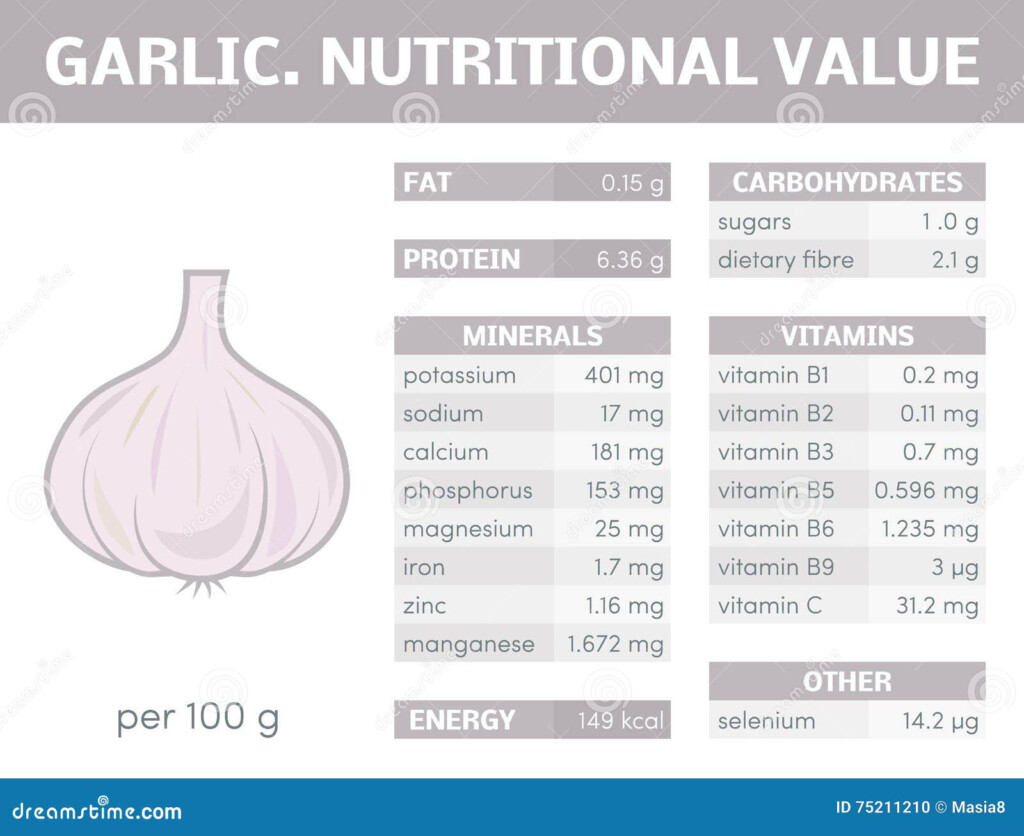Garlic is not only a popular ingredient in cooking, but it also offers a range of health benefits due to its unique nutritional profile. Here is a breakdown of the key nutrients found in garlic:
Garlic is a good source of several vitamins and minerals, including vitamin C, vitamin B6, manganese, and selenium. Vitamin C is an essential nutrient that supports the immune system and promotes healthy skin, while vitamin B6 plays a role in brain function and metabolism. Manganese is important for bone health and helps regulate blood sugar levels, while selenium acts as an antioxidant, protecting cells from damage.
Nutritional Information For Garlic
Antioxidants
Garlic is rich in antioxidants, including allicin, diallyl disulfide, and saponins. These compounds help reduce inflammation and oxidative stress in the body, lowering the risk of chronic diseases such as heart disease and cancer. Allicin, in particular, has been shown to have antimicrobial properties, helping fight off infections and boost the immune system.
Heart Health
Research suggests that garlic may help lower cholesterol levels and blood pressure, reducing the risk of heart disease. Allicin and other sulfur compounds in garlic have been found to improve circulation and prevent the formation of blood clots, further protecting cardiovascular health. Including garlic in your diet regularly may have a positive impact on heart health.
